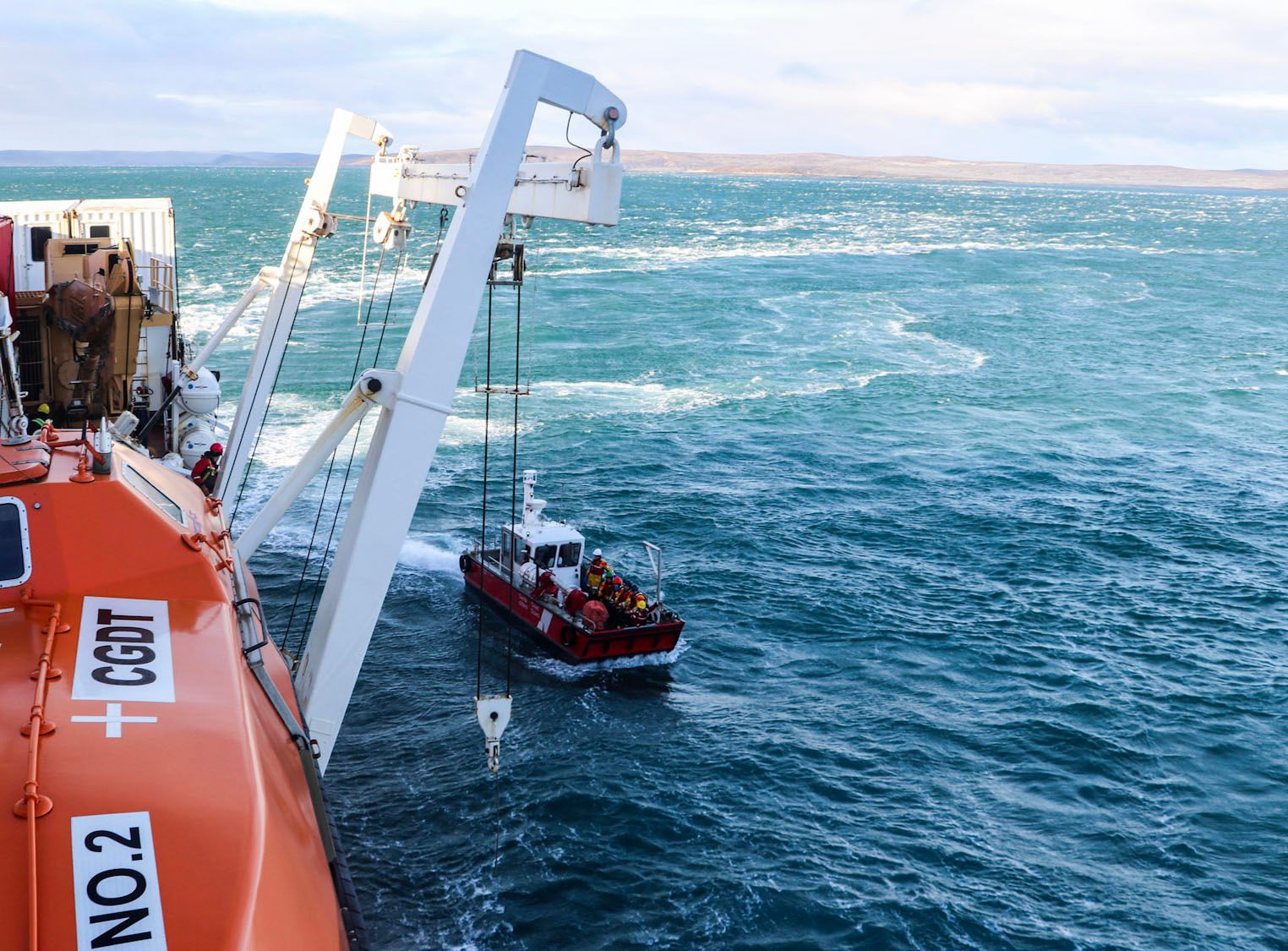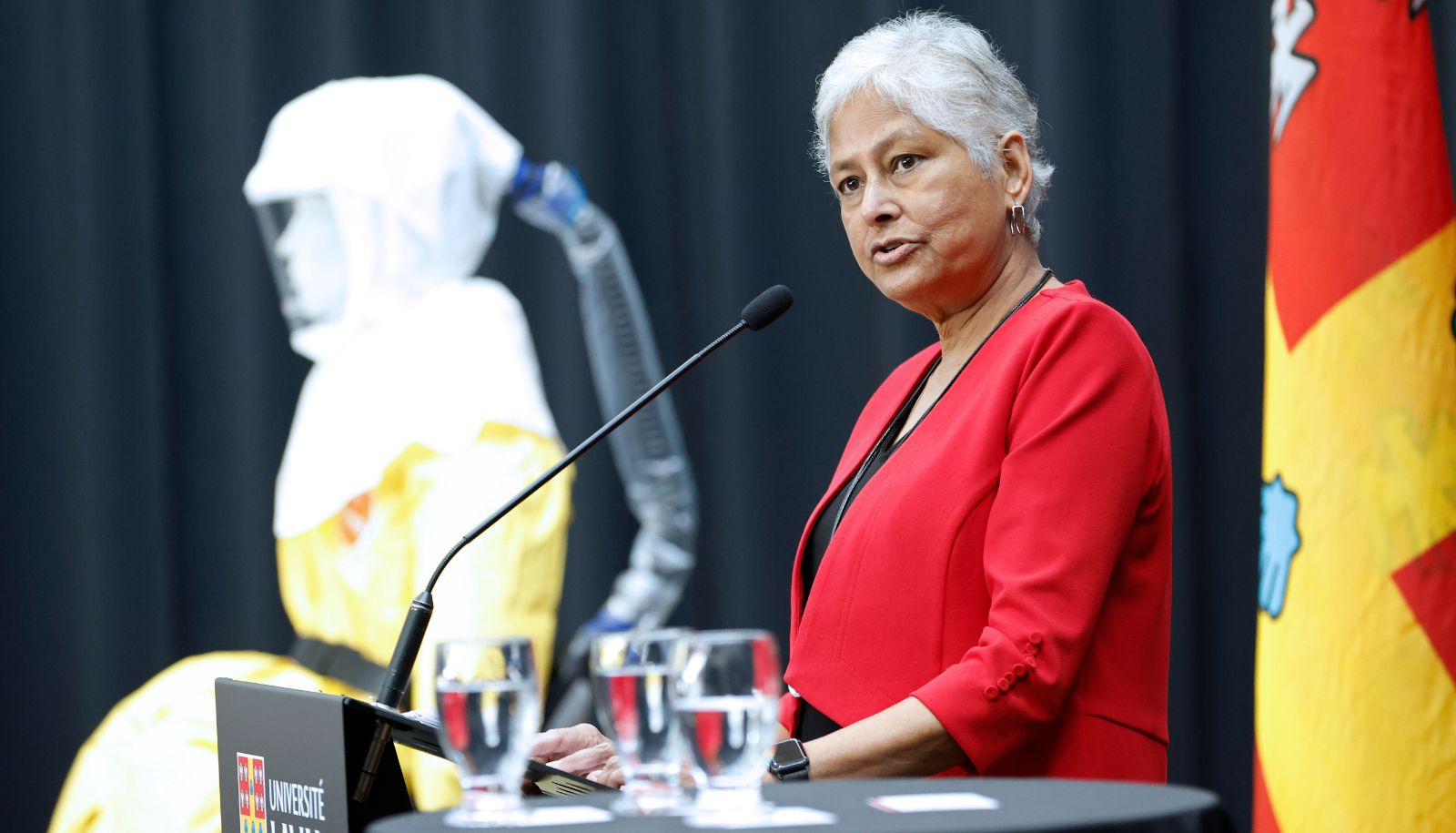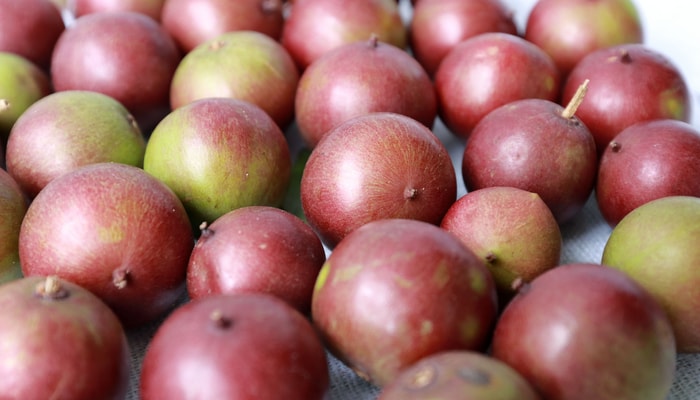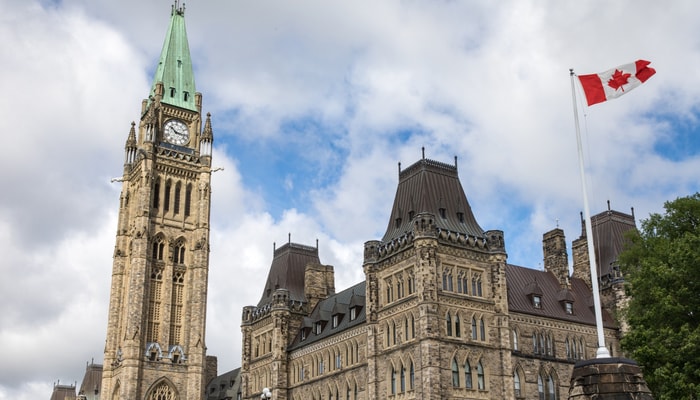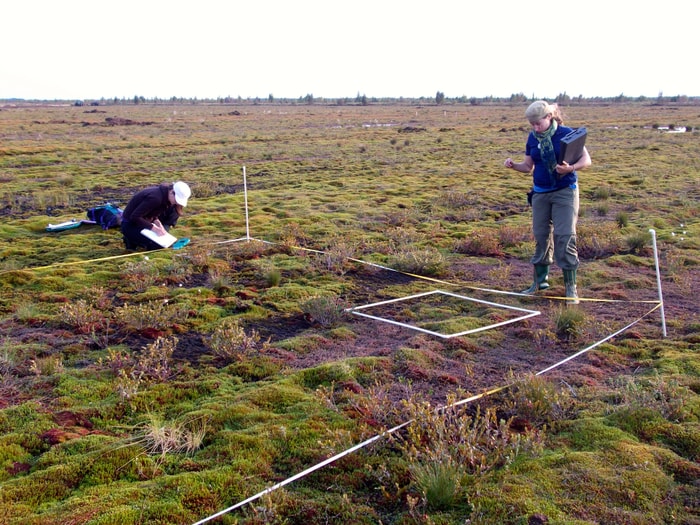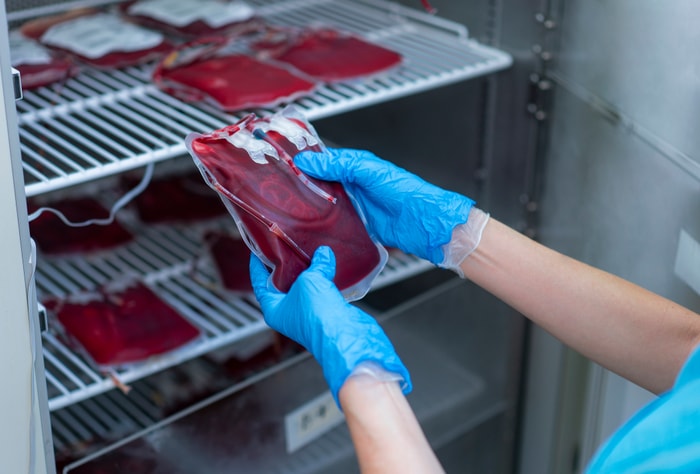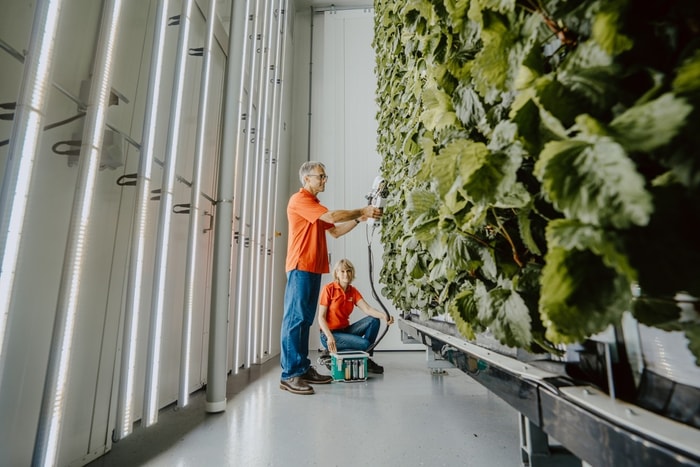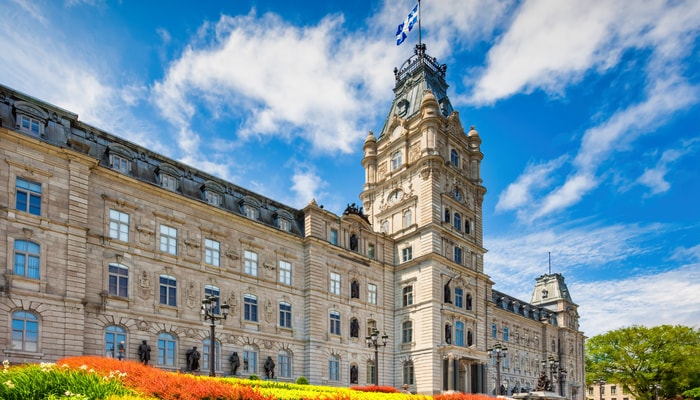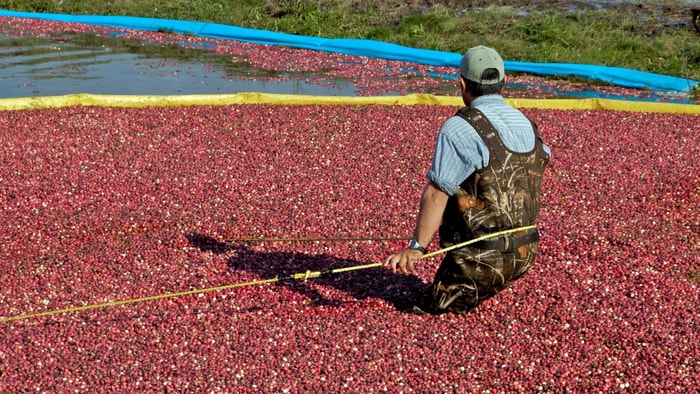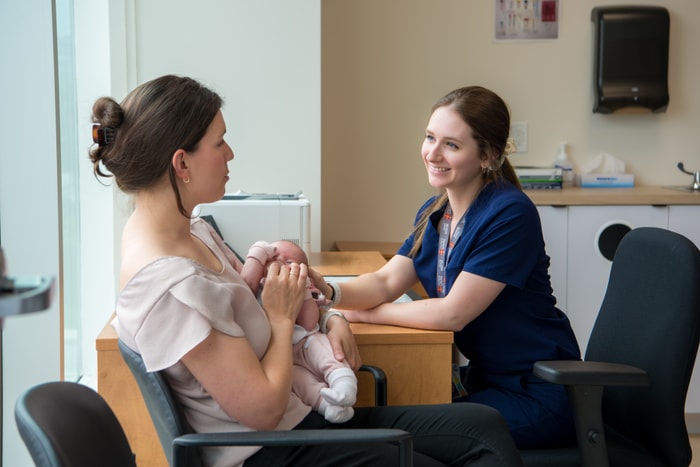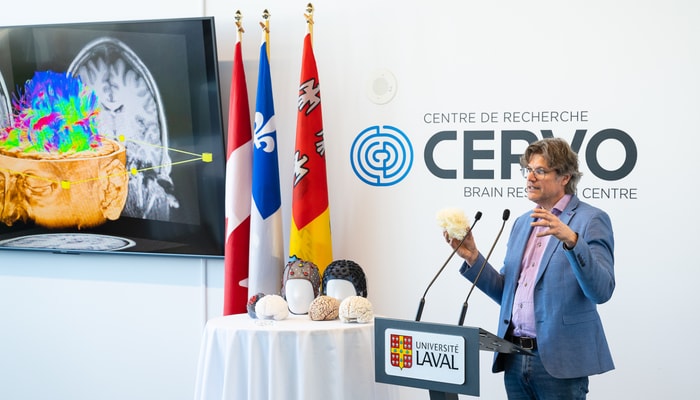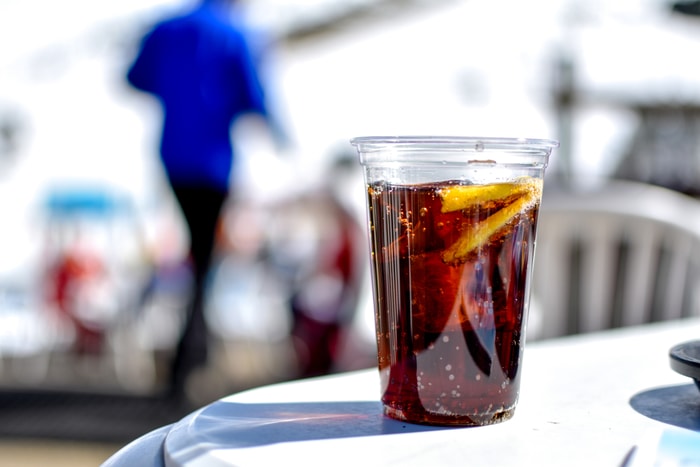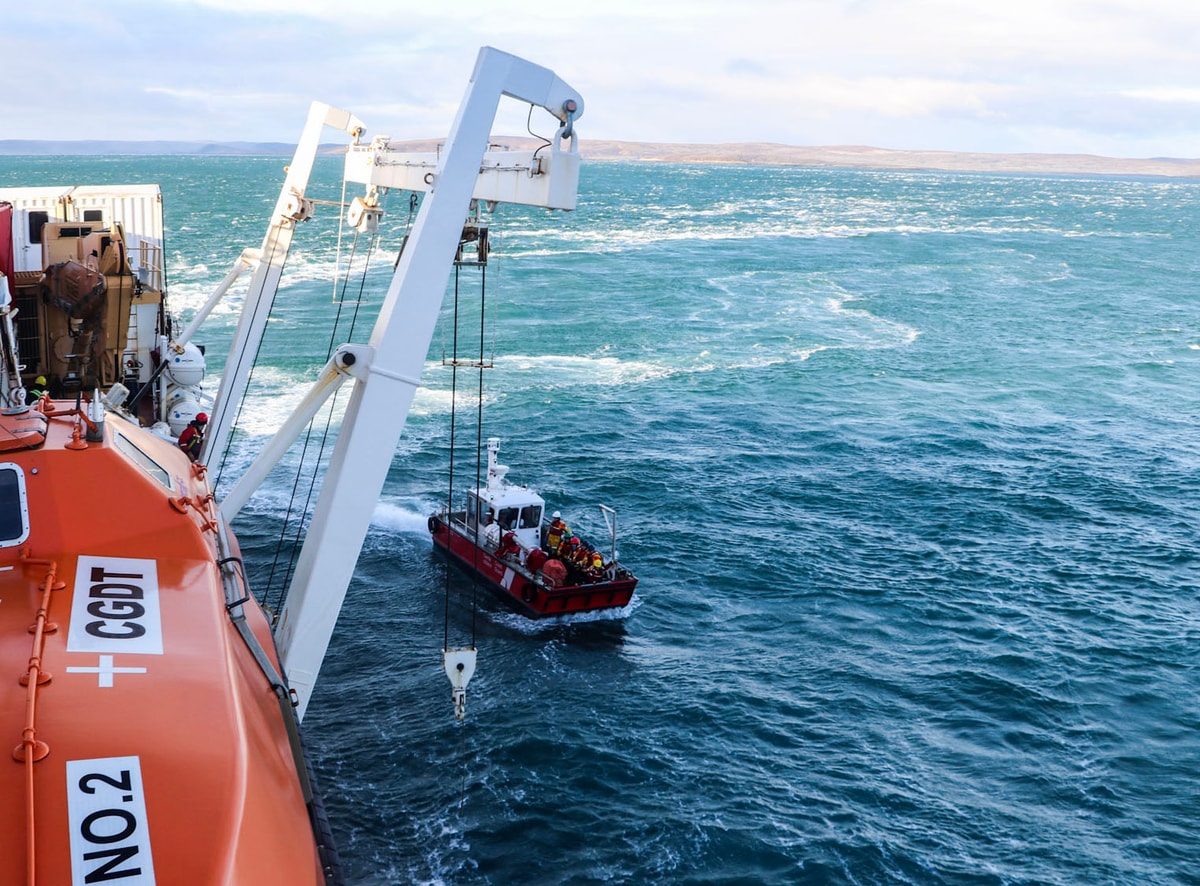
Barge deployed from CCGS Amundsen to collect samples offshore in Ungava Bay
— Meral Jamal/Sentinelle Nord-ULaval
This unique experiential training began in Kuujjuaq and is continuing aboard the Canadian research icebreaker CCGS Amundsen. Offered by Sentinel North and Université Laval’s WAGE Circumpolar Partnership, the School aims to better understand the impacts of climate change in the Arctic for coastal communities that are closely linked to the marine environment and depend on it for their food security.
Gathering knowledge for the North
For most participants, this immersion is their first memorable trip to the Arctic. Throughout their journey, they will benefit from the mentorship of renowned experts from five universities, drawing on disciplines from both the social and natural sciences, including professors Gérard Duhaime (sociology) and Philippe Archambault (biology) from Université Laval. They also interacted with representatives of northern organizations during their visit to Kuujjuaq.
“We are bringing together social scientists and natural scientists to learn from each other and about the Inuit community, to bring together all this knowledge about the blue economy,” says Professor Philippe Archambault.
Aboard the Canadian research icebreaker CCGS Amundsen until October 30, participants will explore Ungava Bay and discover different facets of northern research through fieldwork and discussions with their mentors.
Training the next generation of researchers
The School is part of a series of experiential activities under Université Laval’s Sentinel North research program, one objective of which is to help train a new generation of scientists capable of solving the complex problems of a changing North by building on the strength of interdisciplinary collaboration. It is also part of the WAGE Circumpolar Partnership training program, with the School being the second of three iterations of the “Circumpolar Arctic Summer School on Economy and Society (CASES)” taking place from 2023 to 2025.
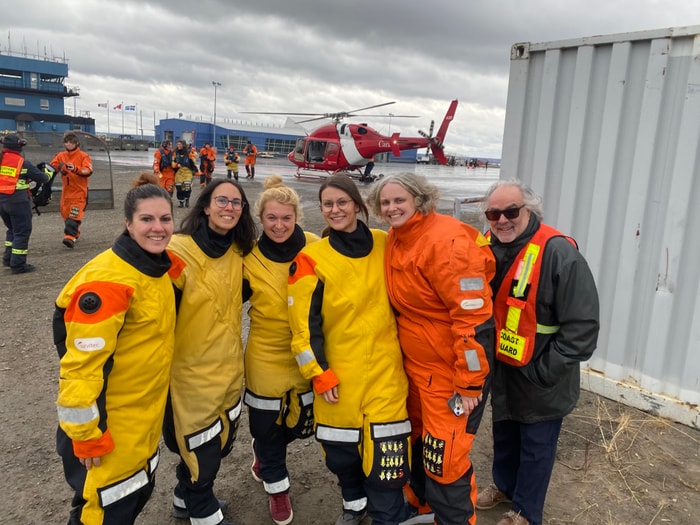
Crew changeover with the CCGS Amundsen helicopter and boarding of participants and school mentors in Kuujjuaq.
— Meral Jamal/Sentinelle Nord-ULaval


